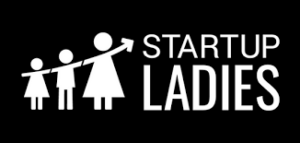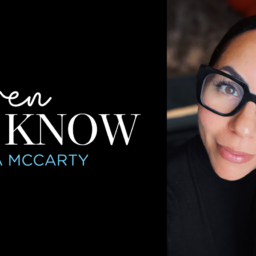
 If you’re constantly daydreaming of creating something of your own and escaping the corporate structure, it may be time to seriously consider entrepreneurship. Striking out solo may sound scary, but there are resources and support systems in place to support budding entrepreneurs. This week, we’re chatting with Kristen Cooper from The Startup Ladies, a membership organization that identifies, educates, connects, and increases investment in women entrepreneurs starting up and scaling businesses. Here are her top four tips for those considering entrepreneurship for their next career move.
If you’re constantly daydreaming of creating something of your own and escaping the corporate structure, it may be time to seriously consider entrepreneurship. Striking out solo may sound scary, but there are resources and support systems in place to support budding entrepreneurs. This week, we’re chatting with Kristen Cooper from The Startup Ladies, a membership organization that identifies, educates, connects, and increases investment in women entrepreneurs starting up and scaling businesses. Here are her top four tips for those considering entrepreneurship for their next career move.
If you’re tired of the traditional 9-5, consider if entrepreneurship is the logical next step:

Budding entrepreneurs can come from many walks of life and with varied work histories. “In many cases, they identified a problem in their professional life and think they have a solution that can be brought to market,” Kristen said. “Many of those who join our community have several similar traits in common driving them to start a company.”
According to Kristen, many are considered industry experts, are well-respected in their fields, have too many responsibilities and not enough time, and are keyed into their local networks. Most commonly, they’re problem solvers with an itch to provide the solution they wish they experienced in their lives and work.
BEFORE YOU LAUNCH, TEST YOUR BUSINESS IDEA:
The process to identify the opportunity ahead is to test your business idea. Kristen suggests that you should:
- Google the idea.
- Research competition.
- Define the problem that needs to be solved in one sentence.
- Differentiate the solution from the competition.
- Understand market needs by surveying and interviewing prospective customers.
- Analyze the data collected.
- Create a prototype based on the data – not assumptions.
This may sound like a lot of work, but the effort is worth it.
“Scalability requires sustainable, repeatable, and measurable processes that increase sales volume and grow profits,” Kristen offered. Testing the viability of your business before you invest time and money into it can help keep you on the right track.
BUILD YOUR BUSINESS FOUNDATION FIRST:
“It’s hard to know what you don’t know. And you need to learn the difference between working ‘in’ the business and ‘on’ the business. Why not learn from startup experts who can help you avoid making those rookie mistakes?” Kristen said.
She suggests that entrepreneurs work on first educating themselves about their industry and building a network in their desired field. Oftentimes, these relationships can lead to collaboration opportunities, funding partners, and mentors that can help you along the way.
Why not learn from startup experts who can help you avoid making those rookie mistakes?
Understand that entrepreneurship can be all-consuming, stressful, and lonely. Take care of your mental and physical health while you pursue your dreams:
In running The Startup Ladies, the need for mental health support became apparent.
“Mental health is often ignored while starting up a company – there’s just too much to do,” Kristen said, adding, “It became clear that we needed a deliberate way to talk about mental health in a professional setting.”
The Startup Ladies hosts quarterly programs for members with an online mental wellness education support system. There are psychological challenges for founders that can be compounded with stress, financial pressure, and competition. Founders should seek out mental and physical wellness opportunities on day one as they build a solid foundation for budding entrepreneurship.
Think you’re ready to start a business? Take this quiz to find out now.
If you’re not ready to launch your own thing just yet, check out next week’s newsletter where we’re cracking the code on applicant tracking systems and bucking the traditional way of landing your dream job by going remote. Kristen Lampkin, The HR Guru, shares her secrets to navigating today’s global talent pool.
Natalie Derrickson is a full-time communications professional and freelance writer obsessed with optimizing human capital while living a full life outside of work. You can find her on LinkedIn.
All of our content—including this article—is completely free. However, we’d love if you would please consider supporting our journalism with an Indy Maven membership.





















